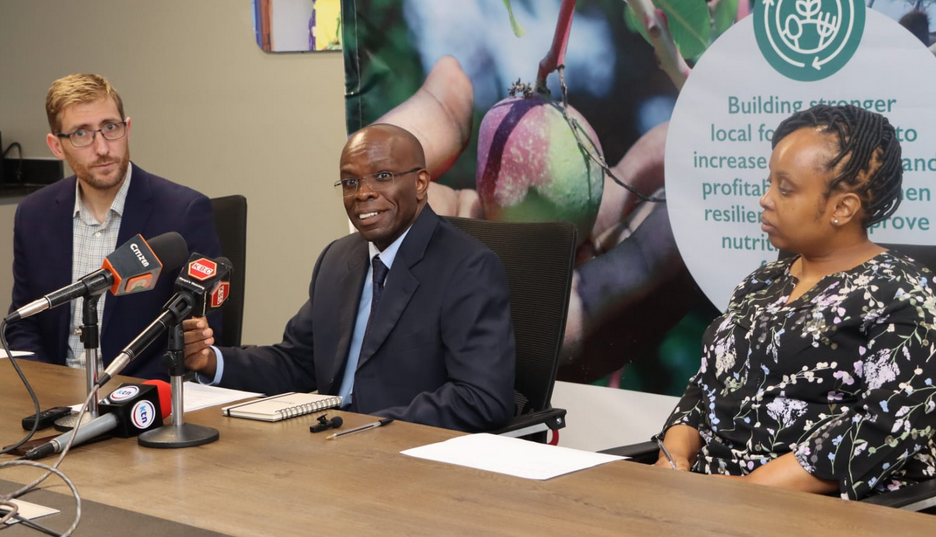
U.S. Agency for International Development (USAID) and international nonprofit organisation TechnoServe have launched an initiative to boost farming in food-insecure regions.
The Feed the Future Kenya initiative seeks to reach more than 600,000 farmers in nine counties.
The initiative is geared towards boosting food production, distribution, and access in the country.
TechnoServe will work with Save the Children, Farm Input Promotions Africa, Busara Center for Behavioral Economics, and other public and private stakeholders at the national, county and local levels.
The initiative aims to increase by 50 per cent incomes of farmers, pastoralists, and entrepreneurs in the targeted areas over the next five years.
It will support adoption of new management practices and
technologies.
"The Feed the Future Initiative is exciting because it combines our expertise with that of our partners to help transform the country's food systems," said Kris Ansin, TechnoServe's Kenya country director.
Feed the Future is an American initiative to combat global hunger.
Led by USAID, the initiative brings partners together to address the root causes of hunger and poverty by boosting agriculture-led growth, resilience and nutrition in countries with great need and opportunity for improvement.
Feed the Future Kenya will support the adoption of new technologies, services, and management practices, helping some 300,000 individuals to apply improved management practices or technologies.
It will also support 2,900 micro, small, and medium-sized enterprises (MSEs) and local institutions to improve their performance and service delivery.
The project will further seek to enhance nutrition outcomes for women and children, reaching about 37,000 pregnant and lactating women and 22,000 children with core nutrition interventions.
Food systems are vital to Kenya's economic development as they contribute over half of the nation's gross domestic product and provide employment for more than 70 per cent of the rural population.
However, challenges such as low productivity, changing climatic conditions, and limited access to markets prevent many individuals especially women and youth from achieving sustainable incomes.
TechnoServe will lead the implementation of the initiative using a collaborative approach to drive new investments while complementing existing public, private, and community effort.
By strategically investing in agriculture, food processing, infrastructure, and sustainable practices, the initiative is expected to unlock the full potential of Kenya's food system.










